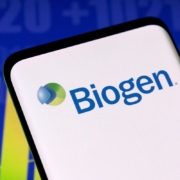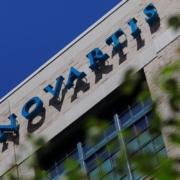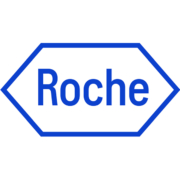Biogen-Lilly solidly in the lead after Roche’s Alzheimer’s Drug misses in Phase III
Biogen-Lilly solidly in the lead after Roche’s Alzheimer’s Drug misses in Phase III
Published: Nov 14, 2022
By Tristan Manalac
BioSpace
Roche’s gantenerumab, an investigational antibody, failed to meet the primary endpoints in GRADUATE I and II, two Phase III studies in Alzheimer’s disease, the company announced Monday.
In patients treated with gantenerumab, scores in the Clinical Dementia Rating-Sum of Boxes (CDR-SB) decreased by 0.31 and 0.19 points from baseline in GRADUATE I and II, respectively. Neither effect reached statistical significance.
In relative terms, gantenerumab slowed clinical decline of 8% compared to placebo in GRADUATE I and 6% in GRADUATE II.
Designed to be administered subcutaneously, gantenerumab is a fully human monoclonal IgG1 antibody that targets sand and binds beta-amyloid aggregates such as plaques, fibrils and oligomers. The drug also activates immune cells in the brain, which is intended to help clear these aggregates and prevent their further formation.
In both GRADUATE studies, amyloid clearance following gantenerumab treatment was lower than the company had expected. Data from both Phase III studies will be presented at the upcoming Clinical Trials on Alzheimer’s Disease Conference.
GRADUATE I and II are double-blinded, randomized and placebo-controlled trials that looked at gantenerumab in nearly 2,000 patients with mild cognitive impairment due to Alzheimer’s Disease or Alzheimer’s dementia.
Over 27 months of observation, the patients’ clinical disposition was assessed using the CDR-SB, which assesses various domains such as memory, orientation and problem-solving.
Gantenerumab was well-tolerated. Amyloid-related imaging abnormalities, including edema or effusion, arose in 25% of the pooled treatment arms from both studies. Most of these cases were asymptomatic, and very few led to treatment discontinuation.
A Losing Streak in AD
This is Roche’s second setback this year in the Alzheimer’s space. In June, crenezumab, also a monoclonal antibody, failed to slow or prevent a rare form of autosomal-dominant Alzheimer’s disease (ADAD).
This form of Alzheimer’s is rare and genetic, caused by a single mutation in the APP, PSEN1 or PSEN2 genes. Fewer than 1% of all patients worldwide have ADAD, but it typically arises decades earlier.
Crenezumab had previously failed two other Phase III trials in 2019. The studies, dubbed CREAD 1 and 2, tested the antibody against early-stage Alzheimer’s. Both were discontinued.
The Alzheimer’s space has seen mixed success of late. In September, Eisai and Biogen’s Phase III CLARITY AD trial of lecanemab returned “highly statistically significant” results, slowing the decline of memory and cognitive function in patients with mild to moderate Alzheimer’s disease.
This revitalized the anti-amyloid approach to treating Alzheimer’s after controversies of fabricated data had hounded the field. A month later, however, it was reported that a patient in the lecanemab trial died. An investigator attributed this to the candidate.
Experts in the field advise cautious enthusiasm and state there is still a long way to go before any disease-modifying treatments for Alzheimer’s hit the market.
Source: BioSpace











